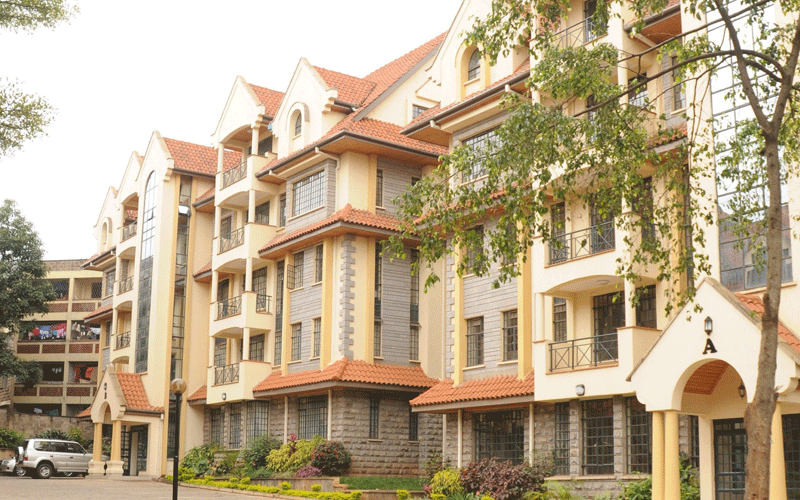Corona gnaws at investors as student hostels remain empty
By Musa Radoli, July 28, 2020The multi-million shilling commercial hostel sector has been thrown into financial limbo as would-be users stay at home on the back of Covid-19 pandemic.
An announcement by Education Cabinet Secretary George Magoha that both private and public educational institutions will remain closed until January next year has left the facilities, mostly occupied by students, in dire straits.
The worst hit are in Nairobi and its environs with the highest number of student populations attending both public and private universities as well as commercial educational institutions from which the operators rake millions of shillings annually.
Restrictions put in place in early March to contain the spread of the coronavirus came when hostels make the biggest killing with new students seeking accommodation spelt doom.
Education ministry officials based at Jogoo House said student explosion from the 1990s, especially those seeking the then so-called parallel degrees, overwhelmed the universities’ hostels forcing students to seek accommodation outside the universities.
Suddenly owning commercial hostels became a booming highly lucrative business not only in Nairobi but all through the major cities across the country from Mombasa, Nyeri, Kiambu, Nakuru, Ongata Rongai, Limuru, Naivasha, Nakuru, Eldoret, Kericho, Kisumu, Kakamega and Bungoma.
At present, the student population in universities and vocational centres according to Kenya National Bureau of Statics 2019 Economic Survey stood at 796,000 in 2017/18 and was expected to grow by 15.5 per cent to 919,400 in the 2018/19 academic year.
The numbers are set to increase as the university/college age demographic continues to grow.
Hostel operators say though they have enjoyed booming business providing accommodation, meals and transport to hundreds of thousands of paying students for decades, Covid-19 has stopped the flow and they are reeling from unexpected huge losses running into millions of shillings per month. Gregory Karanja, a leading businessman with multi-storied hostels in Nairobi said when learning institutions were ordered closed by President Uhuru Kenyatta because of Covid 19 outbreak, the businesses were hit hard with colossal financial income losses.
He said the recent extension of the institutions closure until January next year is a horrendous nightmare he and his colleagues in the business have never experienced in the history of their operations.
Revenue generated
“This means we have lost revenue generated from our hostels per month apart from holidays. It means the entire year we will absolutely have no income to talk of,” he added.
“It is worse for those of us who are renting buildings they have converted into hostels – we have to pay rent but there is no money coming in every month as was previously the case”.
Karanja said the cheapest hostel room per month goes for Sh4,000 with the highest ranging from Sh15,000 to 25,000 per month and a seven or eight storied building can have as many as 700 to 1,000 furnished rooms which would translate into thousands of shillings per month.
He said these charges mostly do not include meals for which the students have to pay for separately depending on the hotels of their choice, adding that it means job losses of thousands of employees who manage these entities for a whole year.
“We do not know if we shall ever recover from this Covid-19 mess,” Karanja added pensively.
His experiences and fears were shared by scores of hotel operators who since the beginning of the year, said have not been lucky to host students and make money.
“With no students there is no life and business. Our hostels have literally been turned into ghost entities,” said Glady’s Kemunto, an hotel manager in Western Kenya.
The story of loss of business and jobs is just like in the equally hard-hit hard hotel industry that saw even leading five star hotels close their doors and send staff home.
Another group with a chain of hostels in the city and environments hit hard, is the Qwetu which operates entities complete with buses to transport students living in their hostels to and from their colleges with full board meals options.
A senior employee who requested not to be named because he is not authorised to speak to the press said the cheapest Qwetu hostel room goes for Sh12,000 per month.
